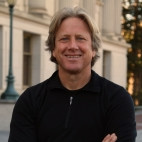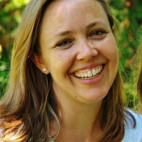
- Venue: Online
-
Price: $129; sliding scale available
- REGISTER HERE
"Wow! Amazing! Incredible!" What teacher doesn’t love to hear these awe-inspired words from students? Not only does awe foster curiosity and learning, it also enhances motivation, improves well-being, and connects students (and all of us) to greater purpose and meaning.
Awe in Education: Creating Learning Environments that Inspire, Motivate, and Heal is our new online course designed to help you create a more “awesome” learning environment. Learn the science of awe, discover the “eight wonders” of awe across time and culture, and find practical strategies to foster more joyful exploration, engagement, and connectedness in the classroom.
This course is for anyone interested in inspiring and supporting our next generation along with fostering the well-being of educators—classroom teachers and college professors, homeschooling parents, school principals, higher education administrators, school mental health professionals, SEL specialists, professional development leaders, spiritual leaders, camp counselors, piano teachers, nature-led learning advocates, and adults interested in bringing more inspiration to pre-K-college education.
How this course will benefit students, classrooms, schools…and you!
Awe promotes well-being in youth and adults.
- Young people taking part in a white-water rafting adventure reported greater well-being after their participation. This increase in well-being was predicted by their reports of experiencing greater awe during the rafting adventure, rather than their experience of other positive emotions, like joy or pride.
- People’s daily ratings of well-being tend to be higher on days when they experience positive awe than on days when they do not report experiencing awe.
Awe fosters a sense of belonging and prosocial behavior.
- Spending time in nature can increase childrens’ sense of awe and their sense of belonging.
- When asked to respond to the question, “Who am I?” people more prone to experiencing awe tend to emphasize their membership in a universal group (e.g., a person or an inhabitant of the Earth).
- Not only does research find that people who regularly experience awe are more generous, but eliciting awe in people can increase their generosity as well as their willingness to make more ethical decisions. Awe also encourages young children to share with others.
- Experiencing awe can increase adults’ and college students’ willingness and intention to make personal sacrifices for the environment.
Awe encourages learning and sharpens our brains.
- Students taking part in an awe-inducing experience show greater gains in learning.
- Students who experience awe tend to be more curious and committed to school, which may improve academic performance.
- The experience of awe makes us less likely to be persuaded by weak arguments. Awe can also encourage people to see things as they are and not as we expect them to be.

